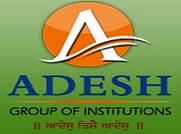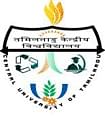Introduction about Ph. D in Finance
A Ph.D. in Finance from best college is an advanced academic program designed to provide
students with a deep understanding of financial theory, empirical methods, and
analytical techniques. This rigorous doctoral degree equips individuals with
the skills necessary to conduct original research and contribute to the
advancement of knowledge in the field of finance.
Throughout the
course of study, students explore a wide range of topics related to finance,
including but not limited to corporate finance, investments, financial markets
and institutions, asset pricing, financial econometrics, and behavioural
finance. They delve into both theoretical frameworks and practical
applications, gaining insights into the complexities of financial
decision-making in various contexts.
One of the primary
objectives of a Ph.D. in Finance is to develop students' research capabilities.
They learn to formulate research questions, design empirical studies, collect
and analyze data, and draw meaningful conclusions. This research typically culminates
in a doctoral dissertation, where students make original contributions to the
academic literature in finance.
The program often
emphasizes quantitative methods and econometric techniques, equipping students
with the tools to analyse financial data and test hypotheses rigorously.
Students may also have the opportunity to engage in interdisciplinary research,
drawing on insights from economics, mathematics, statistics, and other related
fields.
Graduates of a
Ph.D. program in Finance are prepared for careers in academia, research
institutions, government agencies, and the private sector. They may pursue
roles as university professors, researchers, policy analysts, consultants, or
quantitative analysts in financial firms. With their advanced analytical skills
and expertise in finance theory and practice, they are well-positioned to
address complex financial challenges and contribute to the development of
innovative financial strategies and solutions.
Overall, a Ph.D. in
Finance offers an intellectually stimulating and rewarding path for individuals
passionate about advancing knowledge in finance, conducting cutting-edge
research, and making meaningful contributions to both academia and the
financial industry.
What is admission process for Ph.d in Finance?
The admission process 2024 for Ph.D. in Finance typically involves several steps
and varies depending on the institution offering the program. However, here's a
general overview of what you might expect:
Research Programs: Begin by researching universities or
institutions that offer Ph.D. programs in Finance or closely related fields
such as Economics or Business Administration. Look into their faculty
expertise, research areas, and program curriculum to ensure they align with
your academic interests and career goals.
Meet Requirements: Review the admission requirements for each
program carefully. Typically, this includes holding a master's degree in a
relevant field such as Finance, Economics, Mathematics, Statistics, or a
related discipline. Some programs may accept exceptional candidates with only a
bachelor's degree, especially if they demonstrate strong academic performance
and relevant professional experience.
Prepare Application
Materials: Gather all
required application materials, which usually include transcripts from previous
academic institutions, letters of recommendation, a statement of purpose
outlining your research interests and career objectives, a curriculum vitae
(CV) or resume, and any required standardized test scores. Some programs may
also require a research proposal outlining your intended research topic and
methodology.
Contact Potential
Advisors: Reach out to
faculty members whose research aligns with your interests to express your
interest in the program and inquire about potential research opportunities.
Having a faculty member willing to advise you can strengthen your application.
Submit Application: Complete and submit your application
through the university's online portal by the specified deadline. Be sure to
double-check all requirements and ensure that all materials are submitted
correctly.
Interview (if
applicable): Some programs
may require an interview as part of the admission process. If selected, prepare
for the interview by reviewing your research interests, academic background,
and career goals.
Wait for Decision: After submitting your application, you'll
need to wait for the admissions committee to review your materials. This
process can take several weeks to several months, depending on the program.
Receive Decision: Once the admissions committee has made a
decision, you'll be notified of your admission status. If admitted, you'll
receive information about next steps, including enrollment deadlines and any
additional requirements.
Consider Funding: Investigate potential funding
opportunities such as scholarships, grants, or assistantships offered by the
university or external organizations. Funding can help support your studies and
research throughout your Ph.D. program.
Accept Offer and
Prepare for Enrollment: If
you receive an offer of admission, carefully review the terms and conditions,
accept the offer by the specified deadline, and begin preparing for enrollment
in the program.
By following these
steps and carefully preparing your application materials, you can increase your
chances of being admitted to a Ph.D. program in Finance and embark on an
exciting journey of advanced study and research in the field.
What is eligibility for Ph. d in Finance ?
The eligibility criteria for Ph.D. in Finance can vary depending on the institution
offering the program. However, here are some common eligibility requirements
you might encounter:
Educational
Background: Typically,
candidates must hold a master's degree in a relevant field such as Finance,
Economics, Mathematics, Statistics, or a closely related discipline. Some
programs may accept exceptional candidates with only a bachelor's degree,
especially if they demonstrate strong academic performance and relevant
professional experience.
Academic
Performance: Candidates are
usually required to have a strong academic record, including a high
undergraduate and/or graduate GPA. The specific GPA requirement may vary by
institution but generally falls within the range of 3.0 to 3.5 on a 4.0 scale.
Standardized Test
Scores: Some institutions
may require applicants to submit scores from standardized tests such as the
Graduate Record Examination (GRE) or the Graduate Management Admission Test
(GMAT). However, this requirement is becoming less common, and many programs
now offer GRE/GMAT waivers or do not require these scores at all.
Letters of
Recommendation: Applicants
typically need to submit letters of recommendation from academic or
professional references who can attest to their academic abilities, research
potential, and suitability for doctoral study in Finance.
Statement of
Purpose: Candidates are
often required to submit a statement of purpose or personal statement outlining
their research interests, academic background, career goals, and reasons for
pursuing a Ph.D. in Finance at the institution.
Research Experience: While not always mandatory, having prior
research experience, such as conducting independent research projects,
publishing academic papers, or presenting at conferences, can strengthen your
application.
English Proficiency: For international students whose native
language is not English, proficiency in English is typically required. This is
usually demonstrated through standardized tests such as the Test of English as
a Foreign Language (TOEFL) or the International English Language Testing System
(IELTS).
Interview (if
applicable): Some programs
may require an interview as part of the admissions process. During the
interview, candidates may be asked about their research interests, academic
background, career goals, and fit for the program.
Additional
Requirements: Depending on
the institution, there may be additional requirements such as a writing sample,
a resume or curriculum vitae (CV), or specific coursework prerequisites.
It's essential to
carefully review the eligibility criteria for each Ph.D. program in Finance to
which you plan to apply, as requirements may vary. Additionally, reaching out
to program coordinators or faculty members for clarification on any specific requirements
can be beneficial.
What is syllabus of Ph. D in Finance?
The syllabus for Ph.D. in Finance can vary significantly depending on the institution
offering the program, faculty expertise, and specific research interests.
However, here's a general overview of the topics that might be covered
throughout the program:
Foundations of
Finance:
Financial theory
and concepts
Time value of money
Risk and return
Financial markets
and institutions
Quantitative
Methods in Finance:
Probability theory
and stochastic processes
Statistical
inference and hypothesis testing
Econometric methods
for finance
Time series
analysis and forecasting
Corporate Finance:
Capital budgeting
and investment decisions
Cost of capital and
capital structure
Dividend policy
Corporate
governance and agency theory
Investments:
Asset pricing
models (e.g., CAPM, APT)
Portfolio theory
and asset allocation
Equity and
fixed-income securities
Derivative
securities and options pricing
Financial Markets
and Institutions:
Structure and
function of financial markets
Financial
intermediaries
Regulation and
oversight of financial institutions
Market
microstructure
Empirical Finance:
Research design and
methodology
Data collection and
management
Regression analysis
and modelling
Hypothesis testing
and inference in finance
Behavioural Finance:
Psychological
biases and heuristics in financial decision-making
Investor sentiment
and market anomalies
Behavioural aspects
of corporate finance
Implications for
asset pricing and market efficiency
International
Finance:
Foreign exchange
markets and exchange rate determination
International
parity conditions
International
investment and capital flows
Global financial
crises and contagion
Financial
Econometrics:
Time series analysis
techniques
Volatility modelling
and forecasting
Multivariate
analysis in finance
Panel data methods
and applications
Special Topics in
Finance:
Emerging trends and
topics in finance research
Financial
engineering and quantitative finance
FinTech and digital
finance
Sustainable finance
and ESG investing
Dissertation
Research:
Proposal
development
Data collection and
analysis
Dissertation
writing and defence
This syllabus
provides a broad overview of the topics typically covered in a Ph.D. program in
Finance. However, the specific courses and content may vary between
institutions and may be tailored to align with faculty expertise and research
interests. Additionally, students often have the flexibility to customize their
coursework and research focus based on their individual interests and career
goals.












